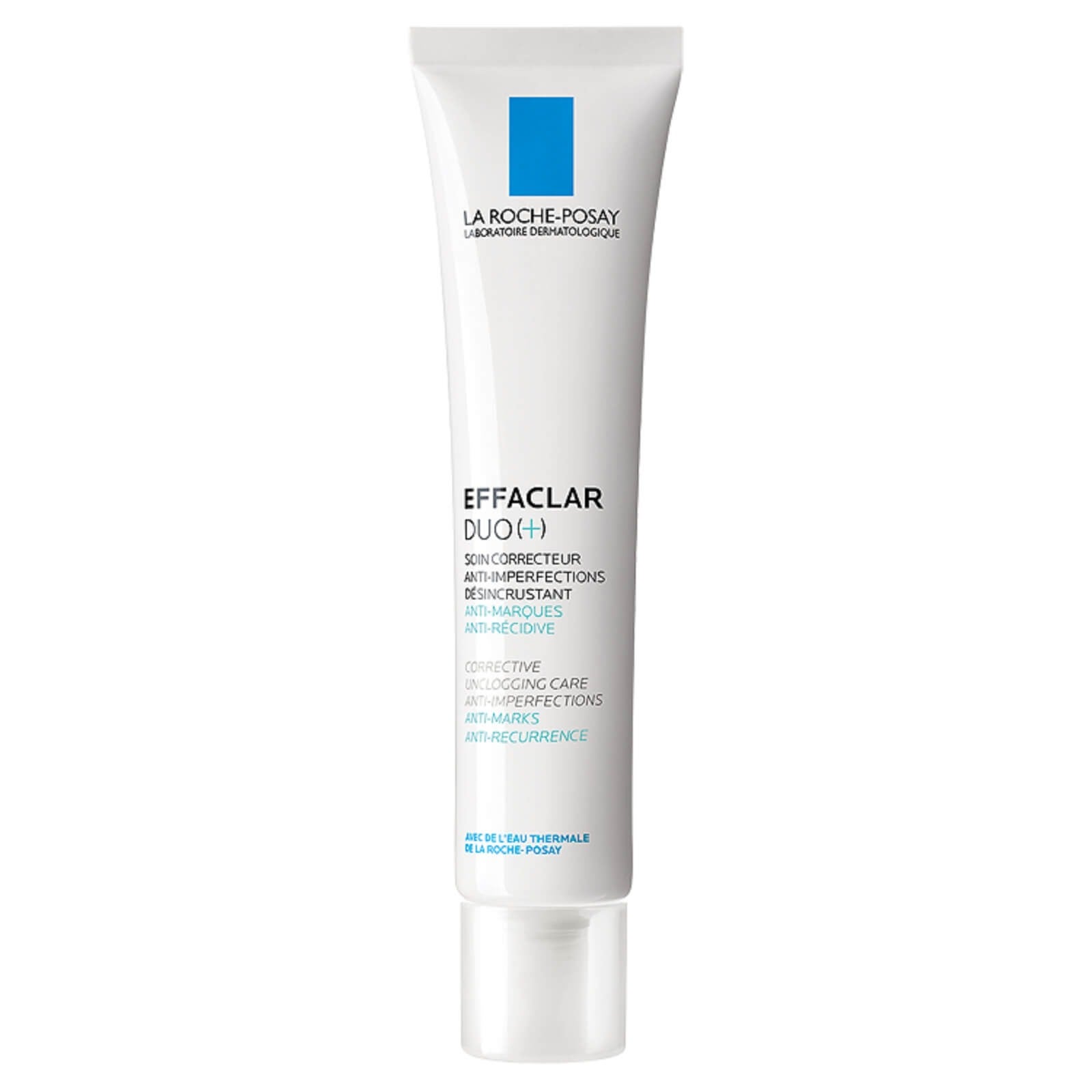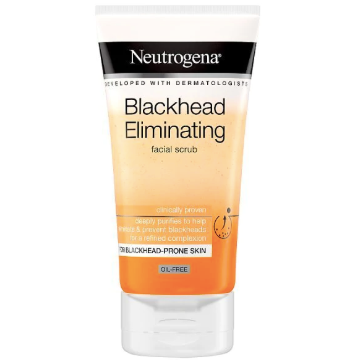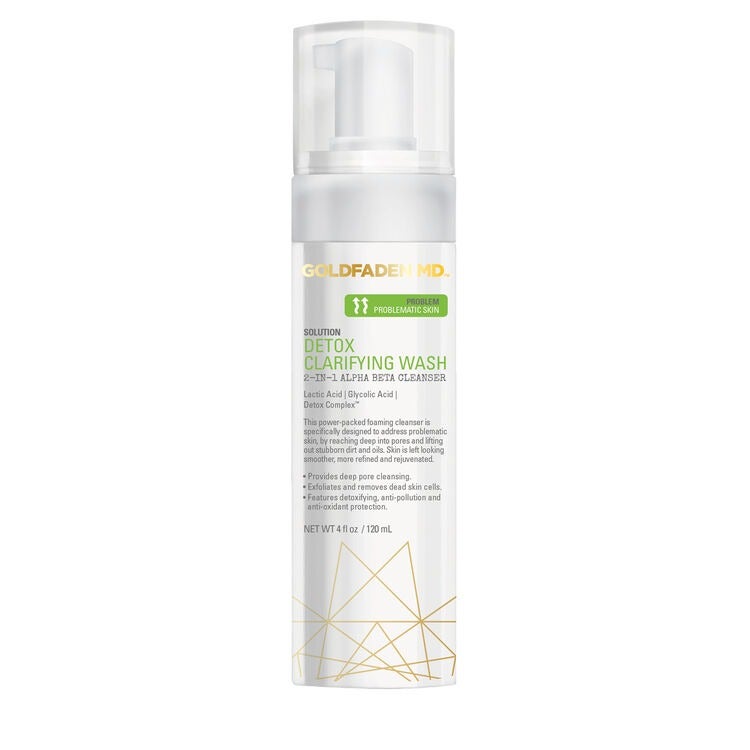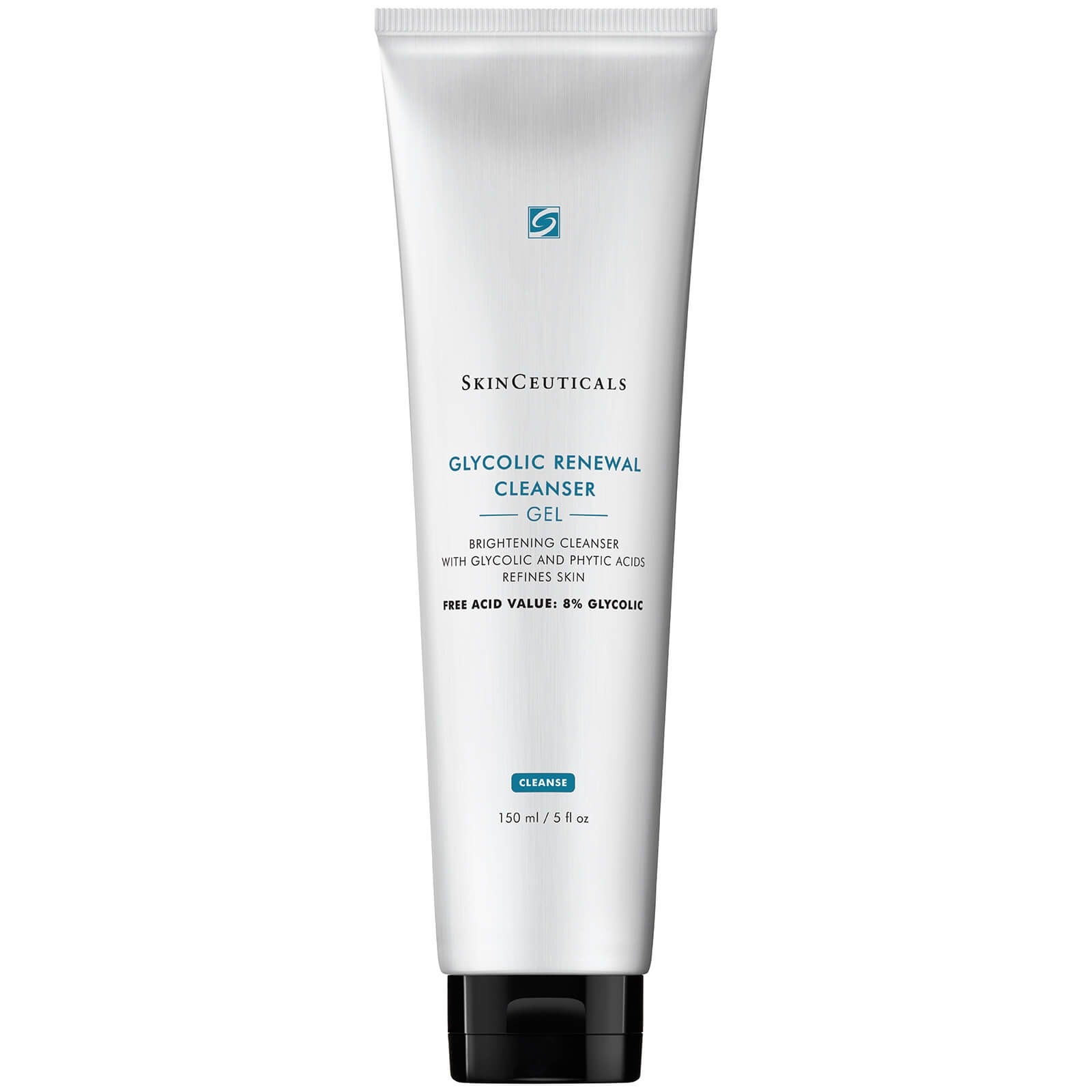Herbal Pills Are A Popular Acne Treatment – But Are They Too Good To Be True?
If you have acne, you'll know just how difficult it can be to treat.
There are many buzzworthy skincare ingredients which work well as part of an ongoing acne skincare routine (such as salicylic acid, glycolic acid and retinoids) but while they may help reduce things like blackheads, small comedones (bumps on the surface) and skin staining left behind by spots, there is only so much a topical product can do. This is especially true if your spots are cystic and result in scarring.
Skin experts state that all forms of acne, whether whiteheads or deeper cystic spots, are hormonal, so if you've tried all the skincare (including topical products prescribed by a GP or dermatologist) and still experience breakouts, you might consider something like the contraceptive pill. Containing artificial versions of female hormones oestrogen and progesterone, the combined pill, such as Yasmin and Dianette, is a popular way to potentially control hormonal acne in women, according to dermatologists and GPs. But side effects such as mood swings, nausea, breast tenderness and headaches often put people off.
AdvertisementADVERTISEMENT
You may also look to make changes to your diet or lifestyle. Consultant dermatologists like Dr Anjali Mahto see individuals cut out dairy and sugar in the hope that their breakouts will improve. Dr Mahto highlights that sugar potentially has some small part to play, although she does not recommend cutting it out altogether, simply being mindful of consumption. However, she says that the link between acne and dairy is scarce. In fact, there is no guideline in the UK or the US which recommends cutting out dairy for the treatment of acne.
Lately, herbal or vitamin acne supplements have gained traction among those looking for a speedy, more 'natural' way to treat breakouts without having to make big changes to their diet or experiencing unwanted side effects of medication. Head online and you'll spot a number of retailers selling supplements which claim to 'clear skin from within' using 100% plant-based, vegan ingredients. The most popular components are vitamin A, zinc, fatty acids and vitamin D3 but you might also spot burdock root, neem and berry extracts. Ranging from around £5 to £25, they seem to offer those with acne a quick, affordable fix. But are they too good to be true?
“
The FDA doesn't evaluate claims made by supplement companies. The vast majority of these are peddled by charlatans looking to make a quick buck off a vulnerable demographic.
Adarsh Vijay Mudgil, MD
”
"Everyone wants clear skin," says Adarsh Vijay Mudgil, MD, founder of Mudgil Dermatology in New York. "With a push towards 'all-natural' regimes, many patients think a supplement is better for them or more natural than a prescription-based regime. Unfortunately, that's simply not the case."
Dr Susan Mayou, consultant dermatologist at Cadogan Clinic, agrees. "People are wary of taking medication such as antibiotics and hormones on a long-term basis as they are worried about side effects, so will often explore natural treatment options in the first instance," she tells R29. But there is a lot of misinformation out there. "There are many false claims and so-called 'treatments and miracle cures' often come from brands and companies wanting to promote their products, which are not backed by science," says Dr Mayou. "Consumers should be very mindful when considering these natural remedies." Dr Mayou adds that while it is true that acne supplements may be complementary to an acne routine (as long as they don’t cost a fortune or cause any harm to health), big clinical trials haven’t been conducted to back up these claims.
AdvertisementADVERTISEMENT
Dr Mudgil reiterates that the research behind them is minimal and believes that overblown claims, such as the ability to clear problem skin from the inside out, are dangerous and misleading. "[Acne supplements] should unequivocally be avoided," he says. "The FDA doesn't evaluate claims made by supplement companies. The vast majority of these are peddled by charlatans looking to make a quick buck off a vulnerable demographic."
While acne supplements are promising, the reality is that they have not been held to the same standards as proven, medical therapies. If you've tried supplements to no avail and topical skincare provided by a dermatologist or GP but your acne is persistent, leaving scars and impacting your mental health, both experts suggest exploring expert-approved oral treatments instead.
“
With a push towards 'all-natural' regimes, many patients think a supplement is better for them or more natural than a prescription-based regime.
ADARSH VIJAY MUDGIL, MD
”
Dr Mayou brings up the contraceptive pill but acknowledges that some can be unfriendly to skin, such as Cerazette. "It is important to get the right one," she says. "The skin-friendly Yasmin or Cilest pills are a good way forward, but a dermatologist (or GP) will talk you through the various options available to develop a programme that best suits your needs."
Antibiotics such as tetracycline, erythromycin and trimethoprim are also options provided by dermatologists and GPs on evaluation, and must be taken for a period of 3-6 months.
Then there's spironolactone. The female-only oral tablet is usually used to reduce high blood pressure but thanks to its ability to counteract male hormones (which can lead to excess oil and subsequently spots), it is used as an off-label acne treatment. "In women, I prefer spironolactone over antibiotics because it actually treats the underlying cause of acne, namely the way hormones interact with oil glands in the skin," says Dr Mudgil. GPs are less likely to prescribe spironolactone for skin issues, though, so it pays to discuss this option (including dosage and side effects) with a qualified dermatologist if possible.
AdvertisementADVERTISEMENT
Lastly, if your acne is severe, persistent and leaving marks on the skin, experts suggest isotretinoin. Otherwise known as Roaccutane, it is an oral vitamin A derivative. Most GPs and dermatologists suggest a 6-month treatment, however there are some side effects, such as skin dryness and joint pain.
In addition to oral and topical treatments, Dr Mayou hits home the importance of a good accompanying skincare routine. While this is dependent on your skin type and type of acne, Dr Mayou says that cleansing the skin to remove makeup, dirt and bacteria is always the first step, being mindful to avoid further pore-clogging ingredients such as oil. "I suggest Bioderma, as they have a great range," says Dr Mayou. "If your skin is very oily, you won’t need to moisturise."
Also try Goldfaden MD Detox Clarifying Wash, £32, which contains lactic and glycolic acid to exfoliate skin and unclog pores, and SkinCeuticals Glycolic Renewal Cleanser, £30, a potent gel cleanser that chips away at dead skin and oil.
If your skin is prone to blackheads, Dr Mayou suggests an exfoliator, such as Neutrogena Blackhead Eliminating Facial Scrub, £3.99. "However, if you have inflammatory acne (swollen, red and painful), don’t exfoliate the skin as this will exacerbate the condition. Follow with La Roche-Posay's Effaclar Duo + Moisturiser, £17, or something non-comedogenic, as it's less likely to block your pores."
While visiting a dermatologist is your best option for tackling acne once and for all, access can be expensive and nerve-wracking. In that case, here's how to talk to your GP about skin conditions (including how they may be impacting your mental health) for the best results going forward.
AdvertisementADVERTISEMENT










